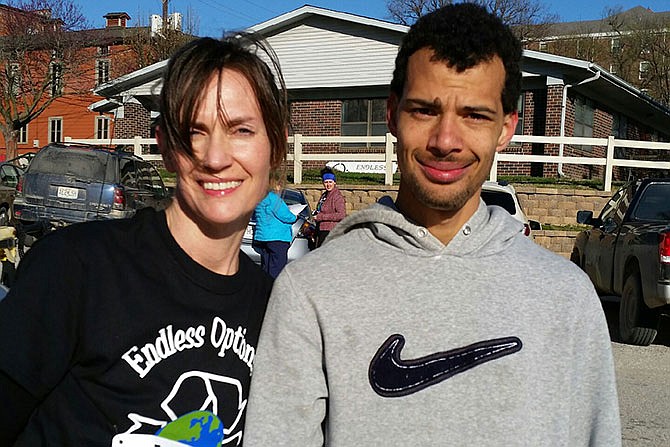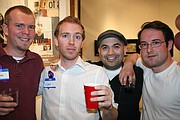JAMESTOWN, Mo. — Carrie Couch is back running 5Ks and Chris Gerlach is hunting mushrooms this spring.
Those wouldn’t be unusual, except that in April 2015, Gerlach was told his only kidney was operating at 9 percent and in December his sister, Couch, gave her kidney to him.
Gerlach said he simply didn’t feel well and had high blood sugar when he sought a second-opinion from the University of Missouri Hospital, after being sent home without concern from another Mid-Missouri emergency room.
Immediately, Gerlach, 46, was admitted with temporary dialysis — without it he may have only had weeks to live.
The next several weeks, Gerlach traveled three times a week for dialysis while his sister considered donating her kidney.
Couch, 42, was born with two, her brother only one.
The process of becoming a donor was long, deliberate and separate from her brother’s healthcare, to avoid bias, she said.
“It went slower than I thought it would,†she said. “But they don’t want to rush the process.
“They really want people to be sure that’s what they want to do.â€
By December, Gerlach had lost 40 pounds and faced other complications with eight months of dialysis.
The siblings waited together the morning of their surgery, neither of them undergoing major surgery before.
“It was a lot worse than I expected,†said Couch, who then had to have a blood transfusion a few days later.
Gerlach, on the other hand, “felt like I was 25; it was unreal. I felt so much better; there’s no comparison.â€
From a tight-knit, Jamestown family, they had good support when they returned home to recuperate.
What they did not expect was the outpouring of cards, meals and compassion from their greater community.
In June 2015, the community also supported Gerlach and his family — wife Laura and their 4 children — with a pork steak dinner fundraiser.
“I don’t know if that would happen in a larger town,†Couch said. “To me, that’s a big deal.â€
The cards and gifts while recovering at home made a big difference, she said.
“When you’re at home recuperating from surgery, it’s a big deal to get a card in the mail,†she said. It says “that people are thinking about you.â€
Gerlach said he was also surprised at how much Couch’s church, New Hope Baptist, did for him.
“People mean well when they say ‘let me know if you need anything,’†Couch said. “But nobody really says something (back).
“I have a better understanding of just acting, doing something … and what it means to go through surgery.â€
As director of the consumer affairs division at the Missouri Department of Insurance, Couch took six weeks off to recuperate. Gerlach, however, can never return to his outdoor, construction work.
The anti-rejection medicine lowers his immune system, making him 700-times more likely to get skin cancer, he said.
Gerlach said he has found a Facebook group of kidney transplant donors and recipients, which has helped answer many of his questions and concerns.
And Couch has gained a greater appreciation for the donor registry.
“There are people who do this for complete strangers,†she said admiringly.
April is National Donate Life Month:


